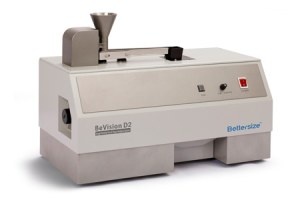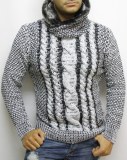Dynamic Image Particle Analysis
Most particle size measurement techniques are based on the assumption of spherical shaped particles. This hypothesis leads to significant errors in the analysis if the particles are flake or rod-shaped. Especially for such highly form-anisotropic particles, automated imaging provides an excellent alternative for the determination of tailor-made size specifications.
Automated imaging methods for the determination of the particle size distribution of a material offers a fundamental advantage over alternative methods such as static light scattering, sedimentation or sieving: Each particle is photographed individually! This results in several important advantages for the determination of the particle size distribution:
Realistic proportional values also at the edges of the size distribution, i. e. detection of oversized particles or fine particles
Visual assessment of the dispersing state of a sample (dispersing quality, presence of agglomerates)
Calculation of meaningful size parameters, e. g. geodetic length or Feret diameter for fibres, depending on the application
Selection of the appropriate distribution type (volume, number) depending on the particular task
In addition, the individual photography of the particles gives the opportunity to make statistical calculations on the particle shape, which in practice enables further differentiation of materials. For example, form anisotropy, the deviation of the particles from the ideal sphere, often plays a decisive role for their application and further processing – for example, the conveyance or compaction of powders, the influence on the rheology in dispersions or, in addition to the particle size distribution, the roughness of the particle surface plays an important role for the success of shaping or polishing.
The necessity for tailor-made particle size and shape parameters, combined with ever-increasing PC processing power, ensures that automated imaging methods are becoming increasingly more relevant to a market which is 95% non-spherical..
BeVision D2
Particle size and particle shape:
Dry: 30µm to 10000µm
Bettersizer S3 Plus
0.01 to 3500μm(Laser System)
2 to 3500μm(Image System)
BeVision M1
Particle size and particle shape:
1 to 10,000µm
If you want to know more types of particle size instrument, please contact us.
At Bettersize, our mission is to provide best-in-class laser particle sizing and characterization instruments, comprehensive solutions and exceptional customer services. We are dedicated to assist scientists, researchers and engineers around the world to understand material properties, facilitate research, improve production efficiency and beyond.
Ubicación : No.9, Ganquan Road, Jinquan Industrial Park, Dandong, Liaoning, China., 118009 Dandong,
Persona a contactar : Xu Spring , +15 1 41 55 76 96








